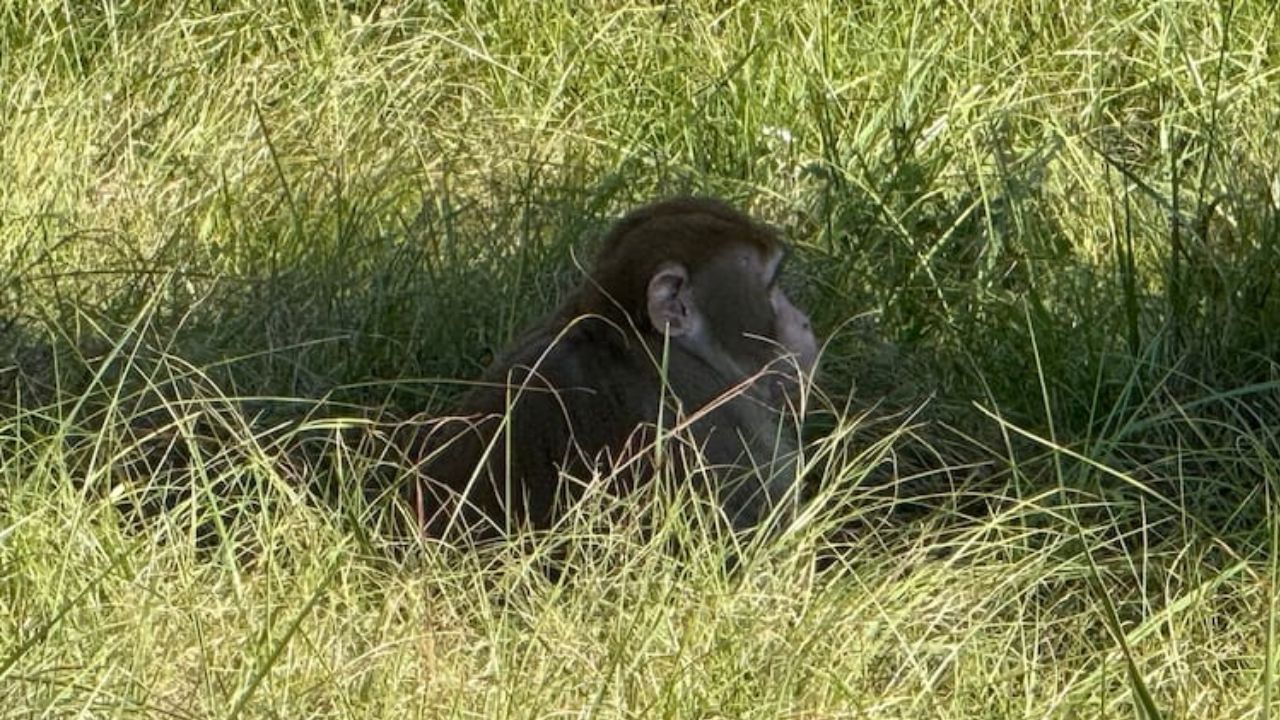Heidelberg, MS – A tense and unusual incident unfolded early Sunday morning in Heidelberg, Mississippi, when Jessica Bond Ferguson shot and killed one of the escaped Rhesus monkeys that had fled after a truck transporting them overturned last week. Bond Ferguson, a mother of five, said she acted to protect her children after receiving a warning and spotting the monkey near her home.
Incident Sparks Concern and Prompt Action
The escape occurred following a crash on Interstate 59 north of Heidelberg that overturned a truck carrying 21 Rhesus monkeys. While most of the monkeys died in the accident, three escaped, prompting warnings to local residents about the potential risks.
Jessica’s 16-year-old son alerted her after seeing a monkey running in their yard. Armed with a firearm due to concerns about possible dangers linked to the monkeys, she confronted and ultimately killed the animal. She told The Associated Press,
“I did what any other mother would do to protect her children. I shot at it and it just stood there, and I shot again, and he backed up and that’s when he fell.”
The Jasper County Sheriff’s Office confirmed the incident, stating the Mississippi Department of Wildlife, Fisheries, and Parks had taken possession of the monkey. No further details were released about the animal’s condition.
Background on the Transported Monkeys and Safety Concerns
The monkeys originated from the Tulane University National Biomedical Research Center in New Orleans, Louisiana. Though the university does not own the monkeys, it regularly supplies primates for scientific research. According to Tulane, the monkeys were recently confirmed pathogen-free.
- The truck overturned on Tuesday, and authorities are investigating the crash’s cause.
- Most of the 21 monkeys died in the accident, but three managed to escape.
- Rhesus monkeys weigh approximately 16 pounds and are known to be aggressive in nature.
- Despite reassurances from Tulane officials that the monkeys are not infectious, local authorities felt the need to “neutralize” the escaped animals.
According to Jasper County Sheriff Randy Johnson, the monkeys’ aggressive behavior warranted action to protect the community. The Mississippi Department of Wildlife, Fisheries, and Parks has been actively collaborating with law enforcement in efforts to locate and contain the animals.
Historical Context and Comparative Incidents
This event echoes a similar episode about a year prior, when 43 Rhesus macaques escaped from a South Carolina biomedical breeding compound due to a security lapse. Such incidents highlight ongoing concerns over the handling and transport of these primates used in medical research.
Federal reports reveal that around a decade ago, biosecurity breaches at the Tulane National Primate Research Center resulted in the euthanasia of some monkeys and led to procedural overhauls and retraining of staff.
Read Also: Attempted Kidnapping at Deerfield Beach Gas Station: Stranger Tries to Snatch 5-Year-Old Boy
Community Impact and Continuing Search Efforts
Residents near Heidelberg remain on alert as authorities continue efforts to ensure safety. The unexpected escape of these primates has underscored both the unpredictable nature of animal transport and the need for vigilance in protecting public health.
For ongoing updates on this developing story, readers can visit the full NBC News report.
Key takeaways:
- Monkeys involved in biomedical research can be aggressive and pose safety concerns.
- Accidents in transportation can lead to serious public safety risks.
- Local authorities and wildlife officials work together to resolve such incidents swiftly.
What Do You Think?
What is your perspective on the actions taken by Jessica Bond Ferguson and the handling of escaped research animals? Share your thoughts in the comments below!


 by
by 

